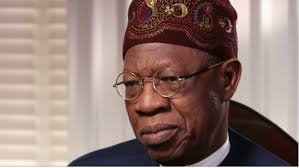Some communication experts have called for the involvement of media players in the formulation of relevant laws to deal with the menace of fake news in Nigeria.
They spoke in Lagos on Wednesday against the backdrop of the mayhem that followed #ENDSARS protests which was largely fueled by fake news.
A communication scholar, Dr Tunde Akanni, urged the Federal Government to involve media academics and professionals in fashioning out relevant laws to stem ‘misinformation’ in public media space.
According to Akanni, Senior Lecturer in Journalism at the Lagos State University (LASU), fake news is basically ‘disinformation’ or ‘misinformation’
He said the government ought to have come up with relevant regulations for the operation of social media as it started developing in the country.
“When you have development coming up in society; that is the time you ought to rationally begin to contemplate how to fashion out relevant laws”.
Akanni, however, recalled that media players were not involved when the Cybercrime Prohibition Act was enacted in 2015.
“That law, among others, provides for the creation of Cybercrime Advisory Council (CAC)”.
He, however, faulted the Act as it did not include any segment of the media constituency in the CAC. Today, the whole world knows about the centrality of digital technology to the operations of the media. How do you cut somebody’s ear behind him? It’s not possible. If media professionals use digital media, they should also have been co-opted into that council, so that they can also come up with ideas relevant from their own perspective to that law. By that, ultimately, all of us will own that law and will know that anyone who contravenes the law, definitely deserves sanction as prescribed by the law”.
Also speaking on the menace of fake news, Dr Lukman Raimi, Assistant Professor of Entrepreneurship, American University of Nigeria and Amir (President) of The Muslim Congress (TMC), said social media was good, as it has made access to information easier and faster.
“Unfortunately, the advent of social media and technologies have given people the liberty to share fake news with the speed of light through social media platforms such as Facebook, Twitter, Instagram and numerous others. The adverse consequences of fake news have caused huge financial losses to individuals, groups and organisations. Poisonous ideas and misleading information from fake news have also ignited wars in communities in Nigeria and other countries”.
Corroborating Akanni’s views, Raimi said Nigerians needed to demonstrate a good sense of responsibility by consciously avoiding the promotion and consumption of fake news.
“To be able to do that, we must ride on the shoulders of giants in the field of communications and media strategies”.
To stem the tide of fake news, Dr Ibraheem Akosile of the Department of Business Administration and Management, Lagos State Polytechnic, advised the Federal Government to sensitise people on the evil of fake news.
Akosile, however, disagrees with the government on the need to regulate social media.
“To regulate the social media, this would be an uncivilised thing to do”.
Also contributing, Dr Abdullahi Shuaib, Chief Executive Officer of Jaiz Charity and Development Foundation, a subsidiary of Jaiz Islamic Bank, remarked that without prejudice to the rights to self-expression as guaranteed by the 1999 Constitution of Nigeria as amended, the same constitution also guarantees the rights to human dignity to others.
“To that extent, any person using the social media must, as a matter of national security, national cohesion, harmony and peaceful co-existence, be circumspect at all times in order to avoid releasing fake information against any person or government advertently or inadvertently”.
According to him, any person whose rights to human dignity has been infringed upon by another person should seek redress in court as a normal course of action to be taken in any sane society.
“However, many people do not have confidence in our judicial system because of the cost of litigation and unnecessary procrastination of the judicial process due to corruption in the processes, procedures and practices of seeking redress. Nevertheless, we should not relent and not give in to despair as the court is still the legitimate institution to approach for the enforcement of one’s rights to human dignity”.
The Foundation boss also suggested that the state intelligence institutions should upgrade their intelligence networks as part of the intelligence risk management to design special codes that can raise a red alert when a user of the social media uses words capable of hurting people or eliciting hatred against any particular section of the community or government.
“I am, however, not suggesting that the government should bug social media. Not at all. Today, the world is driven by technology and I believe the experts in the intelligence institutions understand my drift in this context. There are really no absolute rights to self-expression as long as such rights have the potential to create disharmony, instigate violence and turn the peaceful atmosphere upside down”.
To stem the incidence of fake news, Shuaib advised that the government should intensify public enlightenment through the National Orientation Agency (NOA).
He said NOA should consistently educate the citizenry on the evils of fake news via social media, redirect their minds to the positive use and improve the living condition of the populace.
Shuaib also called for the revival of the lost family and religious values that humanise humanity among others.
Fake News: Involve Media Players in Enacting Relevant Laws – Stakeholders
- Advertisement -
- Advertisement -
- Advertisement -
- Advertisement -
- Advertisement -

